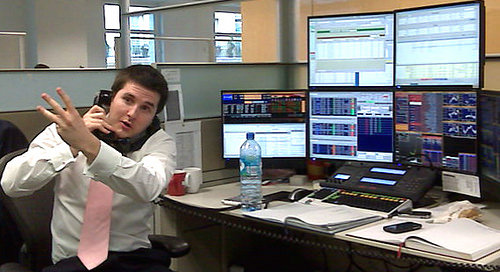Every time we go on holiday, we’re seeing forex trading in play. When you go to change your pounds for euros, or your dollars for francs, you will not receive exactly the same amount that you handed over. This is because currencies are traded at the current exchange rate, just as when you trade using an online platform like ThinkForex.
These currency trades that you affect are transacted on something known as the foreign exchange market. What happens in this market is important to us all, whether or not we realise it.
Understanding the Scope and Set-up of the Forex Market
It is not only tourists and those trading internationally who make use of the forex market. Investors trade from all around the world, exchanging currencies in the hopes of making a profit. Thanks to the necessity of currency exchange, and its global nature, the forex market is the largest financial market in the world, trading around US $2,000 billion per day.
One way that the forex market differs from other markets is that there is no central marketplace. Instead, transactions are conducted electronically, via computer networks located all around the world. This means that the market is open 24 hours a day, five and a half days a week, across almost every time zone. As such, the market is incredibly active, and price quotes can change almost constantly.


Forex trading by Allan Ajifo, on Flickr. This work is licensed under a Creative Commons Attribution 2.0 Generic License.
The Three Ways to Trade Forex
There are three main ways to trade forex: via the spot market, the forwards market and the futures market.
The Spot Market
The spot market is where currencies are bought and sold according to their current price. This price is determined by supply and demand, and is influenced by many different factors, from interest rates to economic performance, political events, and perceived future events. It is a simple bilateral transaction, whereby one person delivers an agreed currency amount to a counter party, and is handed a specified amount of another currency in return.
The Forwards Market
Unlike the spot market, the forwards and futures markets do not trade in real currencies; instead, they deal in contracts representing claims to a certain currency type, a set price per unit and a future date for settlement. In the former, these contracts are bought and sold between two parties, who decide the terms of the agreement between them.
The Futures Market
The futures market is not dissimilar to the forwards market, although contracts are bought and sold based upon a standard size and settlement date on a public commodities market. Individual parties cannot customise certain details of the contract, such as the number of units being traded, delivery and settlement dates and minimum price increments.
Now that you understand it a little better, would you be willing to try your hand at forex?
